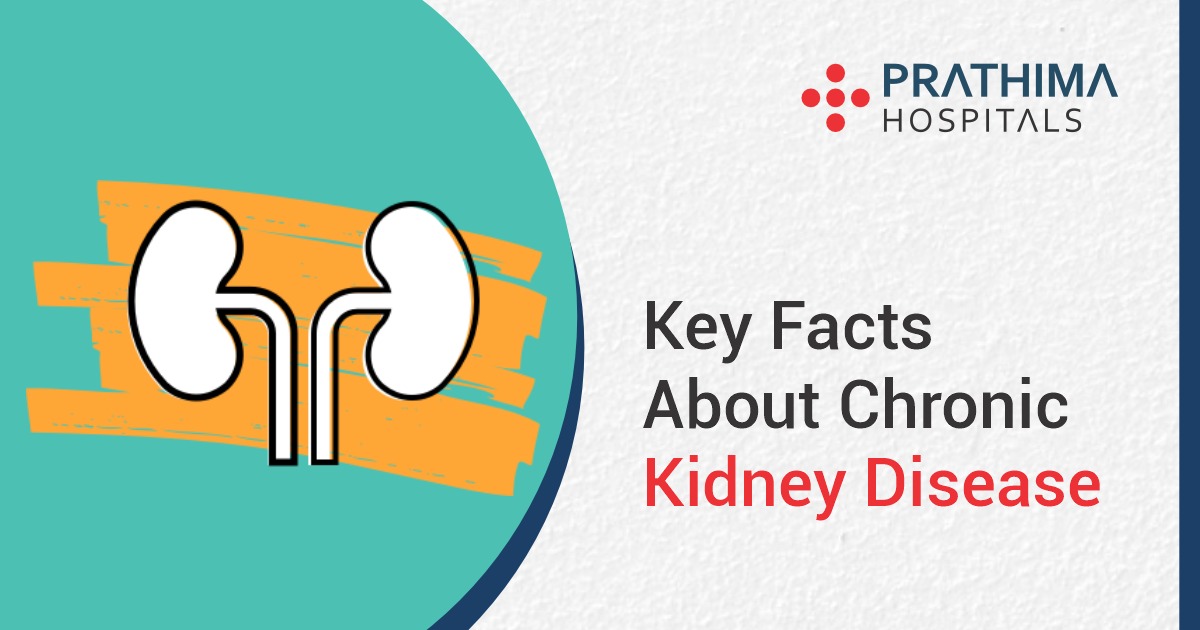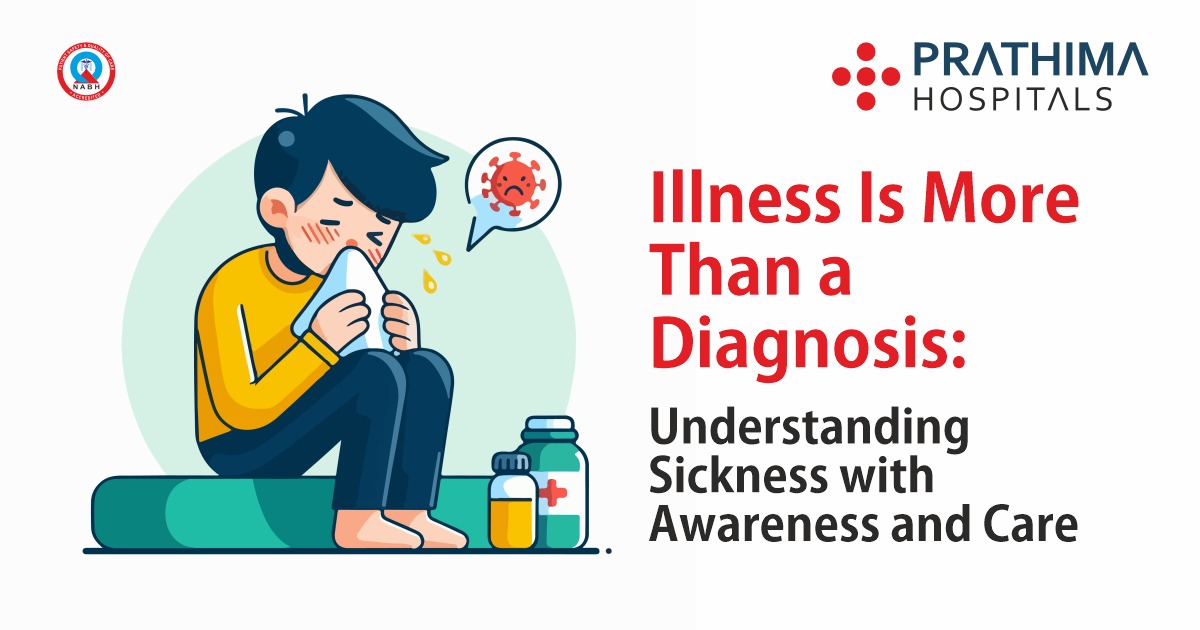Here is what you need to know about chronic kidney disease warning signs!

Chronic Kidney Disease Symptoms
Introduction:
Millions of people around the world suffer from chronic kidney disease (CKD). It occurs when the kidneys are damaged and are no longer able to function properly. Early detection and intervention are crucial in managing the progression of the disease and preventing further complications as said by Nephrologist in Hyderabad. By recognizing the warning signs of CKD, individuals can seek medical attention promptly and take steps to protect their kidney health. In this comprehensive article, we will explore the common warning signs of CKD, and discuss the causes, diagnosis, medications, and symptoms associated with the condition.
Causes of Chronic Kidney Disease:
CKD can have various causes, and identifying the underlying cause is important for effective management. Some of the common causes of CKD include:
- Diabetes: Diabetes is one of the leading causes of CKD as per a Nephrologist in Kukatpally. High blood sugar levels over time can damage the blood vessels in the kidneys, affecting their ability to filter waste and toxins effectively.
- High Blood Pressure: Uncontrolled or poorly managed hypertension can lead to CKD. Excessive pressure on the blood vessels in the kidneys can cause damage and impair their function.
- Glomerulonephritis: Glomerulonephritis refers to inflammation in the kidney’s filtering units called glomeruli. This inflammation can occur due to infections, autoimmune diseases, or other conditions, leading to kidney damage.
- Polycystic Kidney Disease (PKD): PKD affects the kidneys by growing cysts. These cysts can gradually enlarge and disrupt kidney function, eventually leading to CKD.
- Kidney Stones: Recurrent or untreated kidney stones can cause damage to the kidneys, leading to CKD. For Kidney Stones Treatment in Hyderabad, consult Prathima Hospitals.
- Urinary Tract Obstruction: Conditions such as enlarged prostate, kidney stones, or tumours can obstruct the flow of urine, causing damage to the kidneys over time.
Diagnosis of Chronic Kidney Disease:
Early diagnosis of CKD is essential for effective management. Nephrologist in Kachiguda employ several diagnostic tests and evaluations to determine the presence and severity of CKD. These may include:
- Blood Tests: Blood tests help measure the levels of waste products such as creatinine and urea in the blood. Elevated levels can indicate impaired kidney function.
- Urine Tests: Urine tests evaluate the presence of protein, red blood cells, or other abnormalities, indicating potential kidney damage.
- Imaging Studies: Imaging techniques like ultrasound, CT scan, or MRI may be used to assess the size, structure, and abnormalities of the kidneys.
- Kidney Biopsy: In certain cases, a kidney biopsy may be performed to examine a small sample of kidney tissue under a microscope, providing insights into the underlying cause of kidney damage.
Stages of Chronic Kidney Disease:
CKD is categorized into five stages based on the estimated glomerular filtration rate (eGFR), which measures how well the kidneys are filtering waste from the blood. The stages are as follows:
- Stage 1: Kidney damage with normal or high eGFR (>90 mL/min). In this stage, kidney damage is present, but the kidneys are still functioning effectively.
- Stage 2: Kidney damage with a mild reduction in eGFR (60-89 mL/min). There may be slight symptoms or none at all.
- Stage 3: Moderate reduction in eGFR (30-59 mL/min). Symptoms may become more noticeable, and complications may arise.
- Stage 4: Severe reduction in eGFR (15-29 mL/min). Symptoms become more pronounced, and the risk of complications increases significantly.
- Stage 5: End-stage kidney disease (ESKD) with eGFR <15 mL/min or requiring dialysis or kidney transplant. At this stage, Nephrologist in Kachiguda sayskidney function is significantly impaired, and dialysis or transplantation becomes necessary.
Symptoms of Chronic Kidney Disease:
The symptoms of CKD can vary depending on the stage of the disease and individual factors. In the early stages, CKD may be asymptomatic or present with mild symptoms. As the disease progresses, the following symptoms may become more pronounced:
- Fatigue and Weakness: Feeling excessively tired and lacking energy can be an early indicator of CKD. As the kidneys become compromised, they struggle to remove waste products from the body, resulting in increased fatigue and a general sense of weakness.
- Changes in Urination: Noticeable changes in urination patterns can be an important sign of kidney dysfunction. This may include increased frequency, especially at night (nocturia), decreased urine output, or foamy or bubbly urine. Additionally, individuals with CKD may experience difficulty or pain during urination.
- Swelling: The kidneys play a crucial role in regulating fluid balance in the body. When they are impaired, excess fluid can accumulate, leading to swelling, particularly in the hands, feet, ankles, and face. Persistent swelling should not be ignored, as it may indicate kidney damage.
- High Blood Pressure: Hypertension is both a cause and a consequence of CKD. Damaged kidneys struggle to regulate blood pressure, leading to an increase in blood pressure levels as per Nephrologist in Hyderabad. If you notice consistently high blood pressure readings, especially if you have no previous history of hypertension, it is important to investigate potential underlying kidney issues.
- Changes in Appetite and Weight Loss: A sudden loss of appetite, unexplained weight loss, or a metallic taste in the mouth can be warning signs of CKD. As waste products accumulate in the blood due to kidney dysfunction, it can lead to a loss of appetite and changes in taste, which may result in unintended weight loss.
- Nausea and Vomiting: When the kidneys are unable to effectively eliminate waste products from the body, toxins can build up, leading to gastrointestinal disturbances such as nausea and vomiting. These symptoms can range from mild to severe and may occur in conjunction with other warning signs.
- Back Pain: Kidney damage can cause persistent back pain, particularly in the area below the ribcage. The pain may be experienced on one side or both sides and can be dull or severe. It is important to note that not all back pain is related to kidney issues, but persistent or worsening pain should be evaluated by a healthcare professional.
- Changes in Skin: CKD can affect the appearance and health of the skin. Individuals with kidney disease may notice dry, itchy skin, darkened or discoloured patches, or increased bruising as said by Nephrologist in KPHB. Skin conditions like eczema and psoriasis may worsen, and wounds may heal more slowly.
Medications and Treatment for Chronic Kidney Disease:
The treatment approach for CKD aims to slow the progression of the disease, manage symptoms, and reduce the risk of complications. The following medications and treatment options may be utilized:
- Blood Pressure Medications: Controlling high blood pressure is crucial in managing CKD. Medications such as angiotensin-converting enzyme (ACE) inhibitors or angiotensin receptor blockers (ARBs) may be prescribed to help protect the kidneys and reduce proteinuria (the presence of excessive protein in the urine).
- Diuretics: Diuretics help remove excess fluid from the body, reducing swelling and easing the workload on the kidneys.
- Medications to Treat Anemia: CKD can lead to decreased production of red blood cells, resulting in anaemia. Medications such as erythropoiesis-stimulating agents (ESAs) or iron supplements may be prescribed to manage anaemia.
- Phosphate Binders: In advanced stages of CKD, the kidneys may struggle to regulate phosphate levels, leading to imbalances. Phosphate binders may be prescribed to control phosphate levels in the blood.
- Diet and Lifestyle Changes: According to Nephrologist in KPHB a healthy diet and lifestyle modifications can play a significant role in managing CKD. This may include reducing salt and protein intake, limiting foods high in potassium and phosphorus, staying adequately hydrated, and maintaining a healthy weight.
- Dialysis: In cases of advanced CKD or end-stage kidney disease, dialysis may be required. When the kidneys no longer function optimally, dialysis is used to filter waste products from the blood.
- Kidney Transplant: For eligible candidates, kidney transplantation may be considered. A healthy kidney from a donor is surgically placed into the recipient’s body to replace the damaged kidneys. This offers the best long-term outcome for individuals with CKD.
It is crucial to remember that these warning signs and treatment options may vary depending on the individual case, and a healthcare professional should be consulted for accurate diagnosis and personalized treatment plans.
Conclusion:
Recognizing the warning signs of Chronic Kidney Disease (CKD) is crucial for early detection, timely intervention, and effective management. By staying vigilant and seeking medical attention when necessary, individuals can take proactive steps to protect their kidney health and overall well-being. The causes of CKD can vary, and proper diagnosis is essential to determine the underlying cause and severity of the condition. Treatment options include medications, lifestyle changes, dialysis, and kidney transplantation, depending on the stage and individual circumstances. Remember, your kidneys play a vital role in keeping your body healthy, so listen to what they’re telling you and take action to preserve their function.
.
.
.
.
.
For more details:
📞:: 733 733 6600 | 040 4345 4345
🌐:: https://prathimahospitals.com/book-appointment/






Warning: Undefined variable $req in /home/u885608126/domains/prathimahospitals.com/public_html/wp-content/themes/prathimahospitals/functions.php on line 294
Warning: Undefined variable $commenter in /home/u885608126/domains/prathimahospitals.com/public_html/wp-content/themes/prathimahospitals/functions.php on line 295
Warning: Trying to access array offset on value of type null in /home/u885608126/domains/prathimahospitals.com/public_html/wp-content/themes/prathimahospitals/functions.php on line 295
Warning: Undefined variable $aria_req in /home/u885608126/domains/prathimahospitals.com/public_html/wp-content/themes/prathimahospitals/functions.php on line 295
Warning: Undefined variable $req in /home/u885608126/domains/prathimahospitals.com/public_html/wp-content/themes/prathimahospitals/functions.php on line 298
Warning: Undefined variable $commenter in /home/u885608126/domains/prathimahospitals.com/public_html/wp-content/themes/prathimahospitals/functions.php on line 299
Warning: Trying to access array offset on value of type null in /home/u885608126/domains/prathimahospitals.com/public_html/wp-content/themes/prathimahospitals/functions.php on line 299
Warning: Undefined variable $aria_req in /home/u885608126/domains/prathimahospitals.com/public_html/wp-content/themes/prathimahospitals/functions.php on line 300
Warning: Undefined variable $commenter in /home/u885608126/domains/prathimahospitals.com/public_html/wp-content/themes/prathimahospitals/functions.php on line 303
Warning: Trying to access array offset on value of type null in /home/u885608126/domains/prathimahospitals.com/public_html/wp-content/themes/prathimahospitals/functions.php on line 303